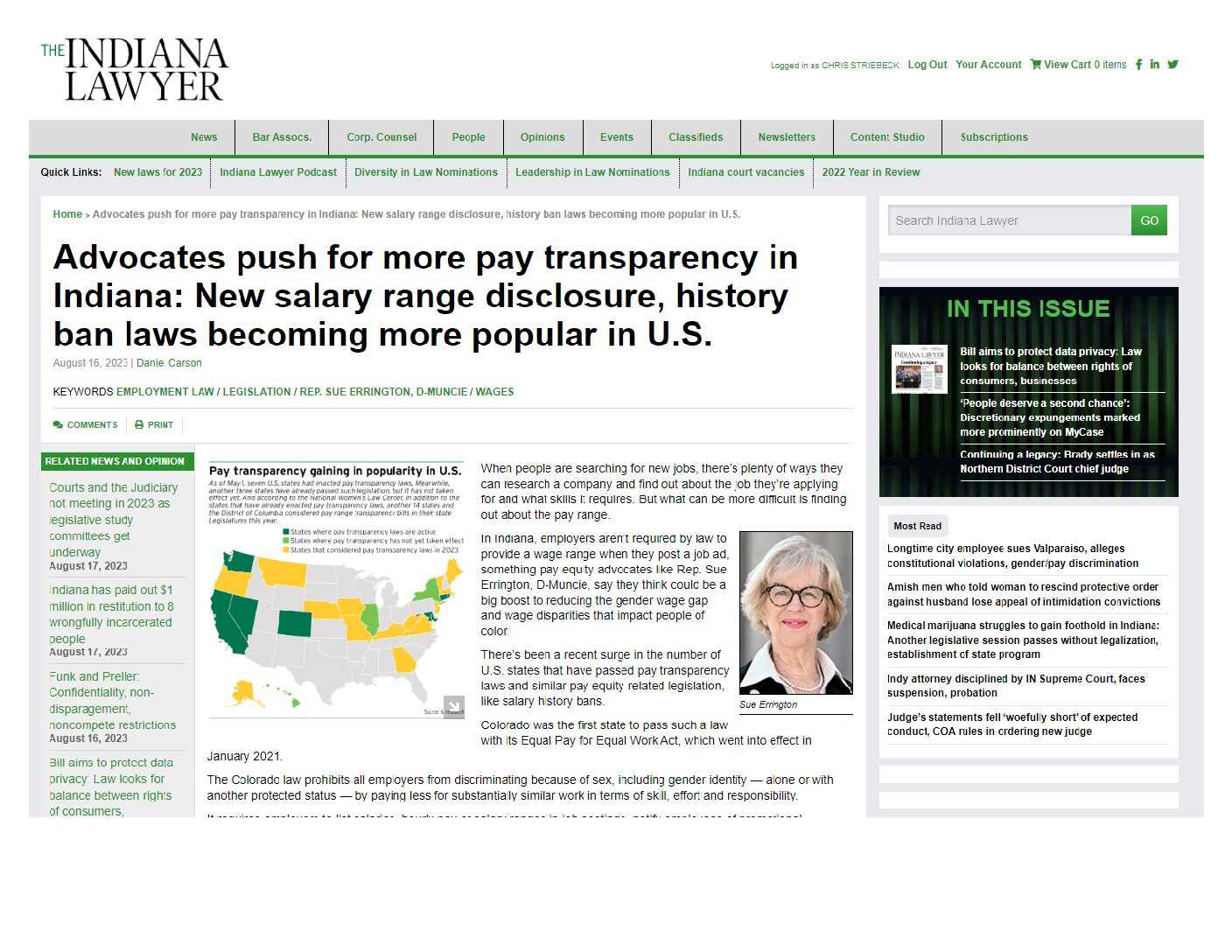
“In Indiana, employers aren’t required by law to provide a wage range when they post a job ad, something pay equity advocates like Rep. Sue Errington, D-Muncie (Indiana), say they think could be a big boost to reducing the gender wage and wage disparities that impact people of color.”
Before we can assess whether it would be beneficial to have a law that would require employers to provide this information, we should first ask ourselves why there may be gender wage gaps and wage disparities that impact all sorts of different people, not just women or people of color.
Many persons, particularly those who lack experience in entrepreneurial endeavors or running a business cannot fully appreciate the innumerable factors which an employer must consider when hiring an individual, even for the simplest of jobs.
Remember, for businesses unconnected to special interests or regulatory barriers to entry, the consensual market is the most unforgiving economic environment. Typically, there is not as much protection and job security relative to positions in nonprofit organizations, governmental bureaucracy, or political office.
When the sole gauge of success is how well you satisfy your customers, knowing that they can instantly exchange your service for that of another, the room for mistakes is very little. It pays to be value-minded in the short and long term. Like it or not, the market, being the sum of individual decisions, may be reflecting that women are not as productive as men over the course of their professional careers, all else being equal.
This is not because they are individually less productive or less intelligent than men in any given moment or as to any task or skill, but perhaps because many may become or are currently mothers that will generally tend to spend more of their lives bearing and raising children compared to most fathers.
As such, they may not be quite as available and present as their male counterparts in their professional roles; thus, their risk profile is different and the value of their services will not be identical. Yes, most entrepreneurs consciously or unconsciously sense these differences and many others and price them into their decision-making.
Similarly, the same may be a reflection that for some minorities in some locales who have been more negatively affected by the relentless failure of public education. It is not because anyone is inherently dumb, but rather what value can a particular person help create in an enterprise. Obviously, education and experience is a huge factor. Each interaction between employer and employee is personal. It cannot be objectified. To micromanage this analysis and decision-making is shortsighted.
Of course, many will find this rationale absolutely sexist, racist, and utterly outrageous. But strictly speaking, historically and logically, from an economic and moral perspective, these considerations and others like them are justifiable without resorting to an assumption of prejudice against gender or race. It is just the reality of subjective economic reasoning in maximizing value to the consumer.
To be sure, there are and will always be at least a few circumstances where prejudice is in play. The good news is: prejudice has always been bad for business, but any good businessman knows to exploit his competitor’s ignorance. There is little room for personal and petty distastes when you are working in a competitive market environment.
However, how does one separate the action of legitimate market considerations from prejudicial behavior? Unfortunately, without being in the heart and mind of each employer, we cannot make this determination. While creating such a law may be well intended, it is totally unenforceable.
When we enact such legislation, we are doing more harm than good by creating a chilling effect on going concerns and entrepreneurs attempting to create jobs and value for consumers. We dampen economic activity. We do not boost it. That is a counterproductive policy. Less employer subjectivity, adaptability, and choice in creating job offerings means less and reduced diversity in available jobs and fewer choices for consumers.
Note: The views expressed are solely the opinion of the author.
Source: SC Striebeck for Wisdom of Anarchy, critiquing “Advocates push for more transparency in Indiana” by Daniel Carson, Indiana Lawyer, theindianalawyer.com, August 16-29, 2023.
Video/Image Source: Indiana Lawyer and IL Research


